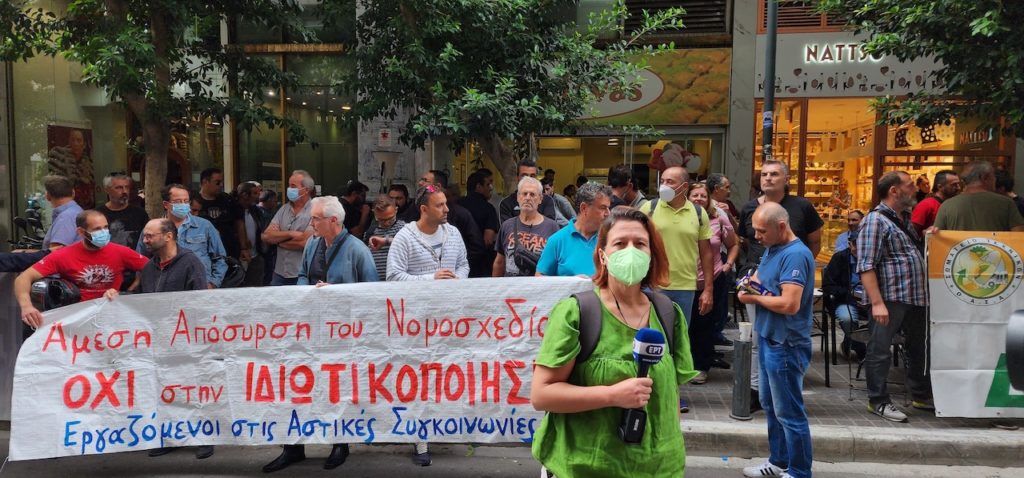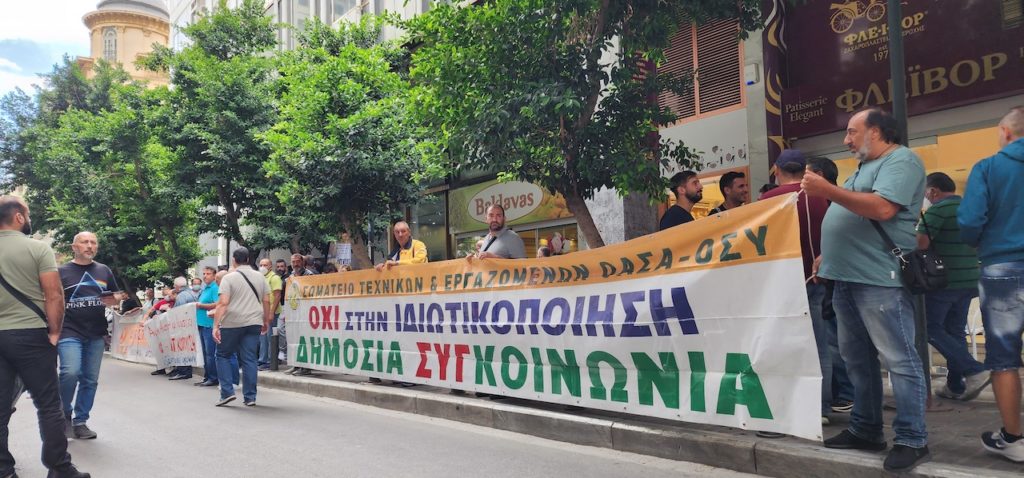On Sept. 21, public transit workers in Athens, Greece, went on strike to protest a new law that essentially privatized public transit and gutted labor rights. The new law paves the way for the complete privatization of state-owned companies and public infrastructure.
It immediately allows the two main public transit companies to introduce a two-tier wage system and raise transit prices amid historic levels of inflation and price hikes. For the workers, this means the abolition of full-time work and permanent contracts.

The 24-hour walkout, announced the previous day by the Athens Labour Centre (EKA), impacted the city’s metro, trolley and bus services. Around 200 transit workers and leaders from Greek opposition parties rallied outside the finance ministry building at noon.
The EKA released a statement saying, “Ιt is imperative to maintain the public nature of public utility companies and to protect the jobs and working conditions of the staff who must be employed in these key positions, on full-time work and permanent contracts.”
Liberation News spoke with Kriton Arsenis at the rally. Arsenis is a member of the Greek Parliament for the MeRA25 party.
“The government is trying to demolish all labor rights, so people will be hired by other companies to be borrowed to the public transport, including drivers, technicians and everything,” Arsenis said. “Of course this is a piece of the march toward privitization,” he continued.
Greek courts used as a reactionary tool
Much like in the United States, Greek courts are used as a bludgeon against basic workers’ rights. The managers of STASY, the Athens Urban Rail Transport company, filed a lawsuit on Sept. 20 aiming to deem the strike unlawful.
Tried the following day, the court complied with the company’s request. The court deemed the strike “abusive” on the grounds that it caused significant financial loss to the company — as any strike does —and that it took place on the day the finance ministry bill was being voted on. It also claimed the strike violated a “skeleton staff” provision, which the conservative New Democracy-led government implemented to prevent all-out strikes.
An official government spokesperson argued for swifter legal repercussions so injunctions against strikes can be fast-tracked in order to prevent or delegitimize them.
Mass privatizations by the New Democracy Party’s government
As Arsenis stated, the privatization of public transit is yet another move toward mass privatizations by the government. After widespread dissatisfaction with the SYRIZA coalition’s failure to combat austerity measures imposed by German imperialism, the New Democracy Party returned to power in 2019. Since then, the ND government has embarked on a wave of privatizations of public enterprises and utilities.
In addition to the new anti-worker public transit law, the recent privatization of Greece’s Alexandroupolis military port brings it under U.S. control. The port is being used to escalate the war in Ukraine by sending arms and missiles to the frontlines, destabilizing the region while lining the pockets of weapons manufacturers.
Greece’s Public Power corporation was privatized in September 2021. The state, which long held the majority stake in the company, had its shares reduced to just one-third.
Greek and U.S. workers have far more in common with each other than with our respective ruling classes. A radical transformation of society is needed both in Greece and the United States to combat the anti-worker, neoliberal measures imposed by our governments.






